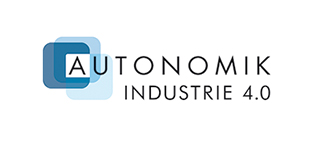Cross-cutting topics
- Business models for Industry 4.0
- IT-Security for Industry 4.0
- Ju-RAMI 4.0
- Legal challenges
- Standardisation
- The future of work in Industry 4.0
The future of work in Industry 4.0
In much the same way as industry is being fundamentally transformed, work too will undergo far-reaching change.
New qualifications, new thinking, new forms of organisation and communication will revolutionise the working world. It is still not possible to envisage how jobs will look in the future. But the time has come to make it possible to estimate and describe the new requirements. That's why from the very beginning the Industry 4.0 concept focused so strongly on labour design and the future of work. A comprehensive approach will be needed in order to turn the Industry 4.0 project of the future into a strategic lighthouse and a guide for innovation policy in Germany. What is clear is that an innovative society needs innovative industry, and innovative industry needs innovative workplaces.
The innovative capacity of companies depends not just on R&D budgets, co-operation with external research institutes and highly qualified staff in the company's own research departments. Innovative capacity calls for a high degree of communication and co-operation across all areas of the company: from R&D to design and work planning, right through to production, sales and service. In order for this kind of co-operation to work and to ultimately lead to first innovations, it must be ensured that the conditions necessary are created at all of the workplaces. This includes, for instance, possibilities for participation and room to decide and act, demanding tasks, possibilities to learn on the job, transparency regarding workflows, even beyond the worker's own workplace and department, as well as a strong culture of information and feedback. These conditions are primarily determined by the company's organisational philosophy and then by the technical systems that are embedded in this organisational philosophy. Both of these, i.e. organisation and technology, must be considered together with people and their needs when designing work in Industry 4.0.
These issues are addressed in a cross-cutting topic in scientific assistance for "AUTONOMICS for Industry 4.0". The central tasks of this cross-cutting topic are:
To process the status of technology and science through specialist publications and guides designed to accommodate practical application
To process examples of good practice from the AUTONOMICS projects and beyond
To initiate and provide ongoing support and moderate dialogue between the AUTONOMICS projects on the topic of "The Future of Work"
To include in this dialogue specialist communities and other stakeholders, such as social partners
To publish work-related results together with the projects
The aim is to help pave the way into a new working world which will be decisive for future generations.
- Recommend this page:
- Print view
